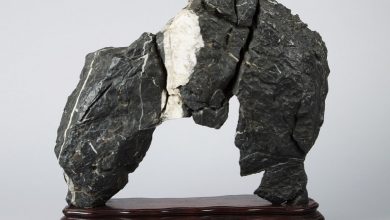Reasons China rejects call to Examine the origin of covid-19

China has dismissed calls for an independent international investigation into the origin of the coronavirus. According to the senior diplomat, the calls were politically motivated and would divert China’s attention from the fight against the pandemic.
Chen Wen, a senior diplomat, told the BBC that the demands were politically motivated and would divert China’s attention from the fight against the pandemic. The information on the origin of Covid-19 and its initial spread could help countries to control the disease.
Many reports point that the virus is thought to have appeared in a wildlife market in Wuhan City late last year. However, an EU report accuses China of spreading false information about the crisis.
The European Union’s external action service says that Russia, and to a lesser extent China, have “targeted conspiracy stories” in the EU and neighboring countries. American President Donald Trump has also repeatedly attacked China for managing the epidemic, and the state of Missouri is suing the government of Chinese, accusing it of doing little to stop the spread of the virus.
Almost from the beginning of the pandemic, calls were made for international investigators to be allowed to enter China to find out how it all began.
Australian Prime Minister Scott Morrison said on Thursday that he would press for an investigation at next month’s annual meeting of the World Health Assembly, the Organization’s decision-making body World Health Organization (WHO). Australia sits on the assembly’s executive council.
The body is already planning to discuss calls for a review of “lessons learned” from health emergencies. But Ms. Chen told the BBC that her country could not accept any international investigation. “The independent investigation is motivated by political reasons,” she noted.
“We are fighting the virus right now, and we are focusing all our efforts on fighting the virus. Why talk about an investigation on this subject? This will divert not only attention but also resources. This is a politically motivated initiative; I think that no one can agree on this point… It would be of no use to anyone.”
Chen said there were a lot of rumors about the origins of the virus. Still, that misinformation was dangerous, she stressed and said it was like a political virus and as dangerous as the coronavirus
“Nervous”
So far, European governments have been reluctant to engage in a diplomatic feud with China at a sensitive time. A British official, who like others refused to speak, said that there was a “nervousness” to face China and that the relations were “delicate”.
Countries depend on Beijing for the delivery of vital equipment to deal with the crisis and want to keep information flow open to help understand what happened this time and prevent future epidemics. Experts say the approach needs to be carefully calibrated. “We need to reduce rhetoric and confrontation because we have something more serious to deal with,” said Charles Parton, a former British diplomat in China and now a senior partner in the RUSI think tank.
In the United States, on the other hand, the question of China becomes intensely politicized in this year of elections, with different calls for a hard line against Beijing and pressure to investigate the origins of the virus. “Despite their potentially serious public health impact, official and state-supported sources from various governments, including Russia and – to a lesser extent – China, have continued to largely target conspiracy and misinformation, both in the EU and in the neighborhood,” said the report.
It argues that Chinese officials and the state media attempted to deflect responsibility for the outbreak by reducing any mention of Wuhan as the origin of the virus. With some state-controlled social media continuing to spread the theory that the outbreak was linked to the visit of US military officials.
The authors also claim that there is “significant evidence of covert Chinese social media operations”, citing reports of networks on Twitter with links to the Chinese government.
The report also points the finger at Russia for spreading misinformation, claiming that pro-Kremlin sources and the Russian state media continued to wage a coordinated campaign to undermine the EU and its response to the crisis and sow confusion about the origins and health implications of the coronavirus.




